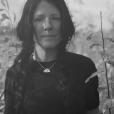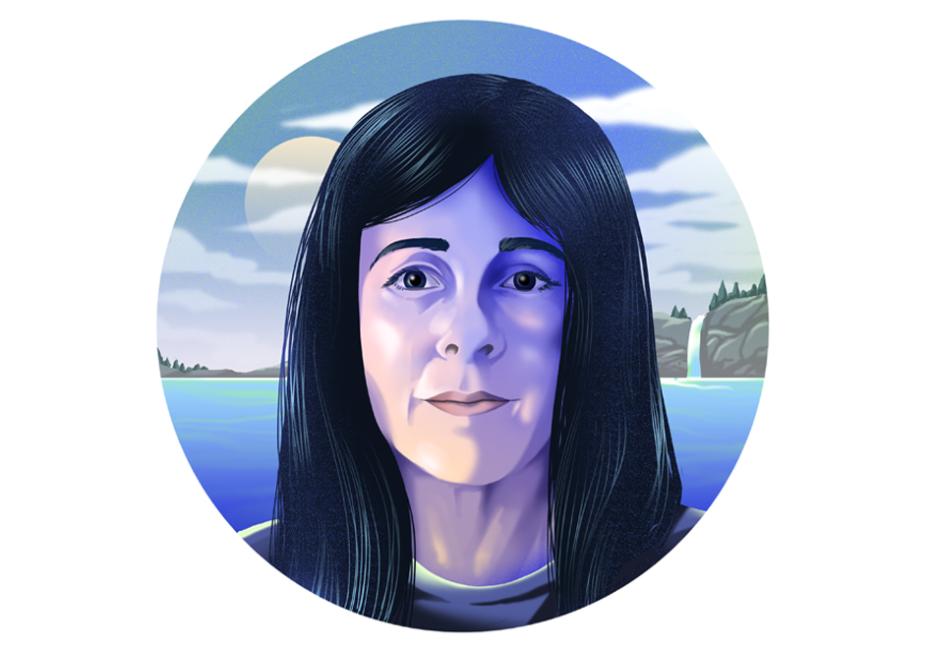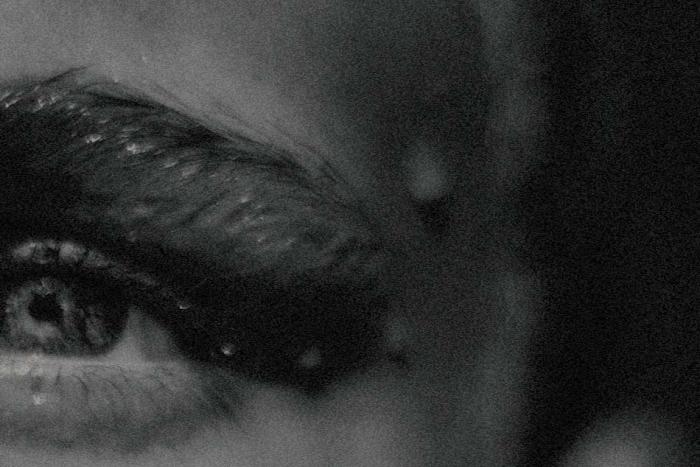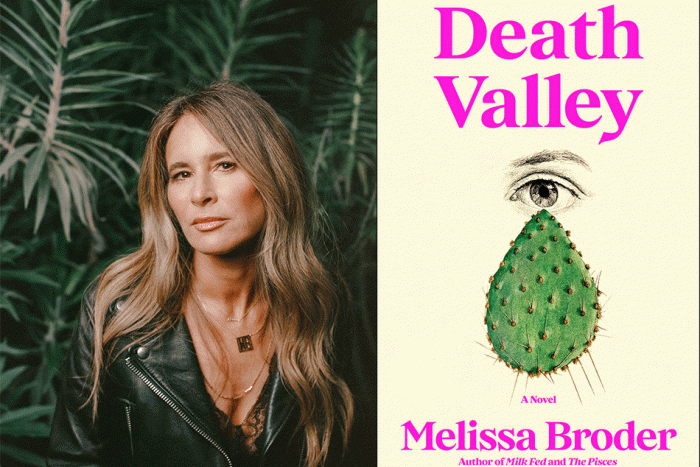Welcome to Bizarre Celebrations, a column about storytellers, craft, and everyday encounters with technology.
When a late summer storm soaked Black Rock Desert this year, turning the alkaline dust of an ancient lake bed to a cement-like gruel, the angry internet learned that Burning Man exists. You won’t believe what happened next.
Around 70,000 people were in Black Rock City, a self-sustaining community on the territory of the Northern Paiute people. The city is assembled and then completely dismantled by participants every year. Theme camps and individual campers are organized into a massive wheel shape, with named city blocks and an address system. Art installations—ranging from a single parking metre to the Big Rig Jig—a sculpture made from two twisted 18 wheelers—are spread out over five square miles. And of course, there’s the Man at the centre of it all—a wooden structure that is burned to the ground, usually on the penultimate night of the gathering. This year, the rain was so heavy there were concerns the burn might not happen. That was, by far, the least outlandish rumour that circulated.
Here in the default world, us normies watched a bunch of sparkly, spandex-clad revelers slog through ankle-deep mud. Within hours we were awash in news stories, some of them verifiable (overflowing porta-potties!) and most of them utterly absurd (Ebola breakout! National Emergency! FEMA on the way!). Opinions poured in from the mainstream media, evangelist groups who believe Burning Man is an evil pagan cult, and slacktivist randos who suddenly cared a lot about carbon output. Some delighted in the misery of the attendees—either jobless hippies or libertarian millionaires, nobody seemed sure. From what I could see, most critics agreed that shutting it down for good would probably end social corruption and save the planet. If there’s one thing online discourse loves, it’s a baddie we can all agree on.
While the internet thundered, most actual Burning Man attendees were offline. Burner principles like “radical self-reliance” and “communal effort” went into high gear. Some were even having a good time. In his opinion piece for the New York Times, author and journalist Cory Doctorow describes the scene at his camp:
“We checked in on our neighbors. We used some of our fuel to play dance music out of the LED Zeppelin art-car’s excellent speakers. We danced. So did the [plastic] bag-footed people on their way to the rapidly filling port-a-potties. When we turned off the music, our across-the-street neighbors switched on their sound. The dancing continued.”
“Dirt rave” is Doctorow’s term, not mine. An experienced burner, he uses none of the blissed-out superlatives of an influencer who gets paid to have a good time on the internet. He doesn’t characterize this year’s burn as a life-altering experience borne out of muddy struggle. I wonder if that’s because he and other burners don’t particularly care what the chronically online think of their summer vacation choice? Frankly, I don’t think the chronically online cared much either, not really. Social media tempests are largely for the teapot-dwellers. Most of the outrage has already passed.
Many years ago, I was taken to Burning Man against my will. Vacation time had arrived and I wanted to do a ten day silent meditation retreat in Kyoto. I’d recently kicked an addiction to amphetamines—a deeply uncomfortable process—and was doing everything in my power to stay clean. But my partner made the money and therefore called the shots. If that seems shamefully codependent (take your own vacations, dummies!), you are correct. It was not a sophisticated relationship.
Our friends said Burning Man had something for everyone. I nodded at them and thought, that’s exactly what a party person would say. Still, I dutifully bought hula hoops and vintage motorcycle goggles and fishnets. Hit the gym five days a week. I read up on the Black Rock City money-free and gift-based economy. Our bank account withered under the weight of our preparatory purchases. Privilege wasn’t a word strangers used to bludgeon each other with yet, but we had it. The same privilege that would have taken me to Kyoto.
We drove down the coast from Vancouver and got in the lineup to Black Rock. From above, that line of buses and RVs and jeeps looked just like the photo that circulated the internet this year, a fifteen-lane superhighway snaking through a beige moonscape. At ground level, the party had already begun. Party people introduced themselves to each other and mingled and shared snacks. I drank the tequila we bought at American Wal-Mart to help me forget that this was the last place on earth I wanted to be. It was night when we arrived, and morning when we passed through the gate, and a naked man told me “be nice” and “drink water until you piss clear,” and “welcome home.”
That was a nice thing to say, welcome home, like I belonged there, though I knew it wasn’t true. Frat boys belonged there, hippies belonged there, installation artists and beautiful people and ageing ravers who could still handle their drugs belonged there. After tents were pitched and food stored and rules agreed upon, people wandered out onto the playa to look around. I made an excuse and sat in the RV, alone. It was hot and noisy and overwhelming—already.
On my second day, there was a knock at the RV door. I opened it and there stood Elisabeth, an old friend from university. She’d been coming to the burn for years.
“I didn’t think that could be you,” she said. “You used to hate this shit.”
I told her I still did. She told me to put on something silly and follow her into the deep playa.
We walked out past the centre camp, where Burning Man Information Radio is always sharing the latest on hundreds of daily events. Past the theme camps and geodesic dance domes and bars where the picklebacks were free but it was hard for me to believe we were welcome. Then past the art cars shaped like snails and birthday cake and Flintstones cars. Past all that, things quieted down.
In fact, what Elisabeth called “deep playa” is tremendously, deliciously quiet. So calm that Elisabeth paused her tour and we walked in silence, with only the swish of my crinoline skirt and the clunk of our boots against hardpacked playa dust. When we came to a deserted rest stop, with a couple of wicker chairs and a thatched umbrella, we sat. I lit a cigarette and the wind shhhhhhh’d through the umbrella and the baking hot ground shimmered. Turns out Burning Man did have something for me.
After a while, we walked back towards camp. Elisabeth pointed across the playa at a swirling beige cloud that was coming our way. My first playa dust storm.
We pulled on our goggles and masks. Within minutes it was nearly impossible to see more than a few feet in front of me.
“Keep walking!” Elisabeth said. As if we had a choice. We were at least a mile away from camp.
My mouth dried up and my nostrils burned. I wondered if one of those art cars was going to mow us down. Maybe the birthday cake, it was huge and seemed to roam the playa autonomously. Nevertheless, we persisted, edging our way towards the distant wobble of a dubstep camp.
“You’re doing great,” Elisabeth said.
I believed her. And gradually, the dim outline of dozens of masked weirdos appeared, dancing like they were in a Steampunk music video. In the offline world, it’s totally possible for something to be great and terrible at the same time. It would be a lie to say I grasped this lesson right at that moment—I was just happy when the storm cleared and the sun came out. The party raged on for days, until the man burned in a dizzying blur of light and sound that didn’t make me miss being high. All the humans packed up, cleaned up, and cleared out, and the playa was empty and silent again.






